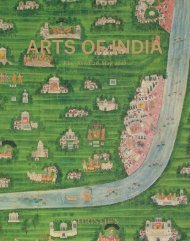1JZGauQ
1JZGauQ
1JZGauQ
Create successful ePaper yourself
Turn your PDF publications into a flip-book with our unique Google optimized e-Paper software.
5: CASE STUDY 2: THE CZECH/AUSTRIAN BORDER<br />
between 1989 and 1991 had to respond immediately if there was an alarm,<br />
day or night. One of the things he remembers most clearly from his time as<br />
a border guard was the lack of sleep during his shifts and he often did not<br />
get to sleep much for the three days he was on duty (Marek, 2010, pers.<br />
comm. 4 th November).<br />
The relationship between the soldiers and the officers varied greatly from<br />
place to place but was always based on a superior-subordinate relationship.<br />
To demonstrate the character of one of his officers who was responsible for<br />
political schooling (propaganda) Marek explains how he and the other<br />
soldiers were told that they should be proud to be border guards as that<br />
meant they could kill a man without any risk of being prosecuted (Marek<br />
2010, pers. comm. 6 th November). A previous officer at the Šafov border<br />
guard station, Tomas, however, stressed the importance to keep on a<br />
friendly foot with the soldiers as this would enable work to run more<br />
smoothly. Generally the border guards were conscript soldiers whilst the<br />
officers were military professionals (Tůma 2006: 12). There was some possibility<br />
of advancing to higher grade also for the soldiers but few border<br />
guards were interested in taking this opportunity. The majority of them just<br />
wanted to get their service out of the way so they could go back to their<br />
regular lives. The border guards could receive awards for good conduct<br />
either in the form of a present (a book, diploma, or a photo taken in front of<br />
battle flag or wrist watch) or as praise in front of the rest of the unit. The<br />
most sought after award was an extra day off but this was very unusual<br />
(Marek 2010, pers. comm. 4 th November).<br />
All border guard stations were closed in 1991 although border guarding<br />
had become much more scaled down and relaxed following the velvet<br />
revolution in 1989 (Marek 2010, pers. comm. 4 th November). A working<br />
day was now reduced to 8 hours per day and 10 if there was an alert. The<br />
soldiers were trained to remove the fences at training stations, such as at<br />
Jemnice, before they were set to work on removing the actual fences along<br />
the borders. Border police took over some of the former border guard<br />
stations after their closure, for example in Lukov, but their operations were<br />
severely reduced. Most border guard stations were left to decay and the 20<br />
years since their closure have left them in a poor state. The exceptions are<br />
those buildings that have been taken over for other purposes.<br />
143




